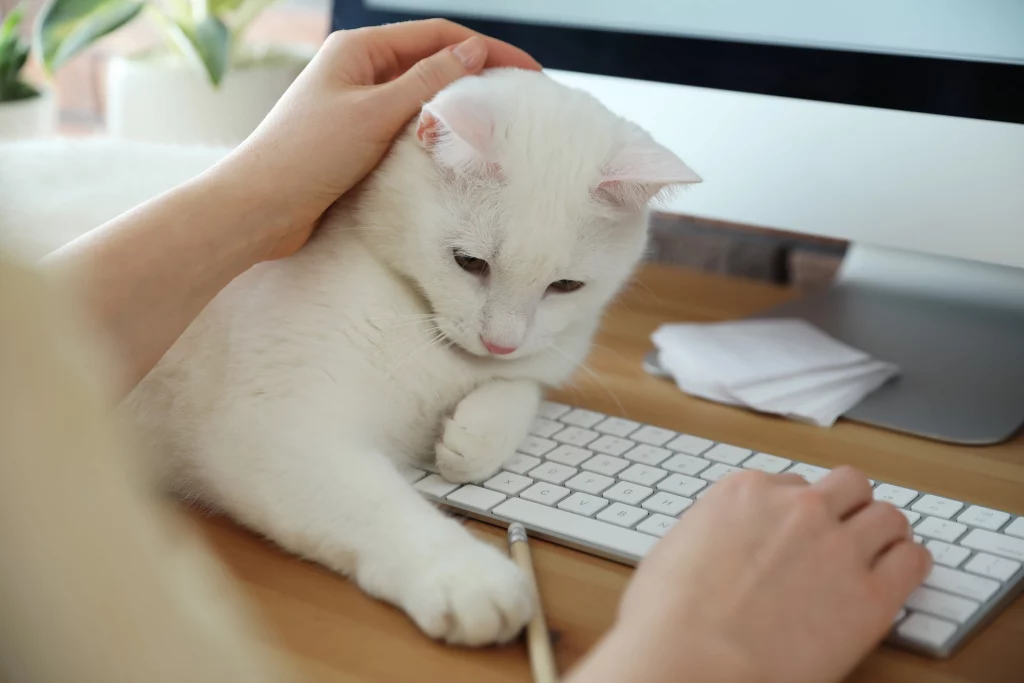Is your cat trying to monopolize all your time, pushing everything out of the way to get to you? They are amazingly gifted at getting our attention. They may make a four-point flying landing on your laptop while you are working, dig their claws into your sweater to become permanently attached, or head-butt your arm just as you are about to take a sip of coffee. “I’m here – pay attention to me!” Your cat is being really possessive. But why?
Experts say, think back to when your cat first started acting this way. Did a new person, pet or project enter your life? It could be jealousy. Your cat may be feeling forgotten and fearful of rejection. He needs to know that he’s important, too.
Sadly, when there is a new baby in the house, parents don’t realize that the cat is suddenly ‘acting up’ because of this. Often the sad result is that they give the cat away – the very thing the cat fears.
This brings us to another reason: abandonment issues. If you have a rescue cat, he will be bringing some emotional baggage home, too. Reassure your little one often. Keep in mind that he may be afraid of being sent away again.
Also, cats expect routine. If your daily life has been disturbed even in small ways such as moving a chair to another wall, your cat may become clingy. He doesn’t know what to expect next, so he’s looking to you for clues.
In the wild, cats instinctively defend their resources. You are a resource, the giver of food, protection and care. If there is any reason to feel insecure about these, your little guy will be guarding you more closely. Make sure he has adequate food and water, and feels safe.
If someone has recently departed from your lives, your cat may be feeling lonely or sensing your loneliness. Perhaps both of you need comforting and it’s time to take a break for cuddling.
If your cat is usually independent, but suddenly becomes insistent for you to pay attention, especially if he wants to crawl into your lap and be held, check his health. Sometimes he’s trying to tell you he is hurt or sick.
Your possessive cat can also be your protective cat. You may have become so involved in an activity that you left the water on, or haven’t noticed the stranger outside. Yes, there are ‘watch-cats.’ If you follow your cat, he will take you to the problem.
A strongly possessive cat may hiss, swat, growl and bite, or even spray his territory. It’s important to put a stop to this immediately, firmly but kindly. Tell him no, and remove him from the situation if you have to. Later on, seek your cat out for special attention when he isn’t expecting it, so he will feel assured that he is loved and that all is well.

